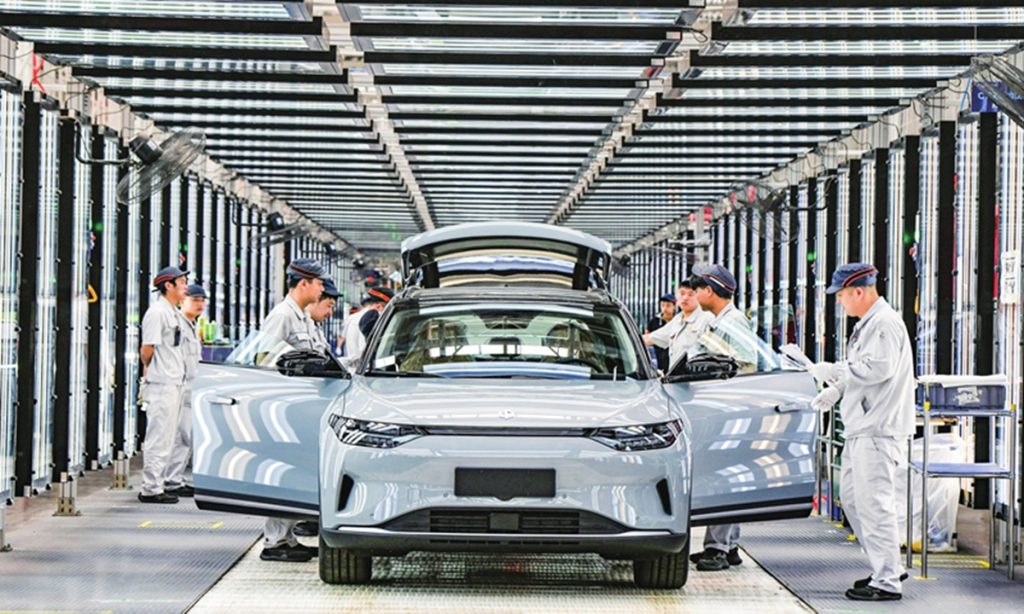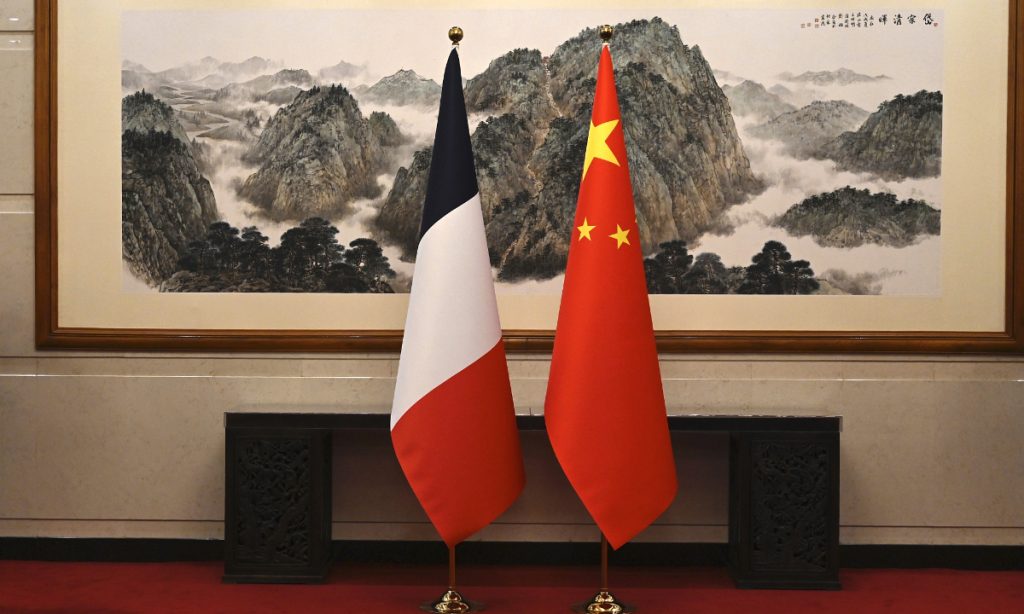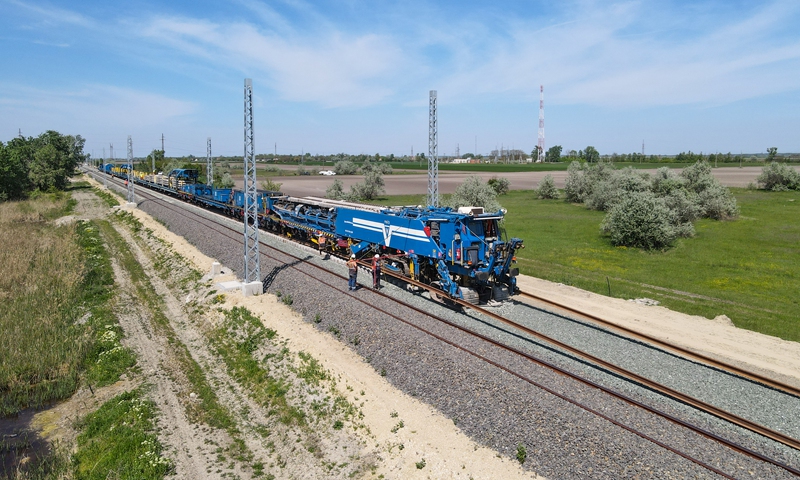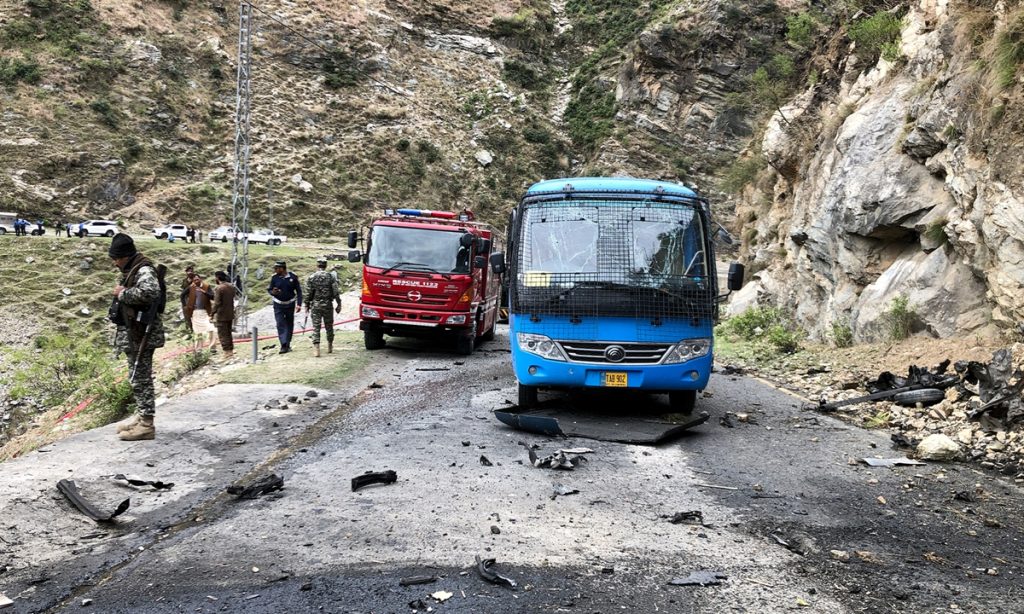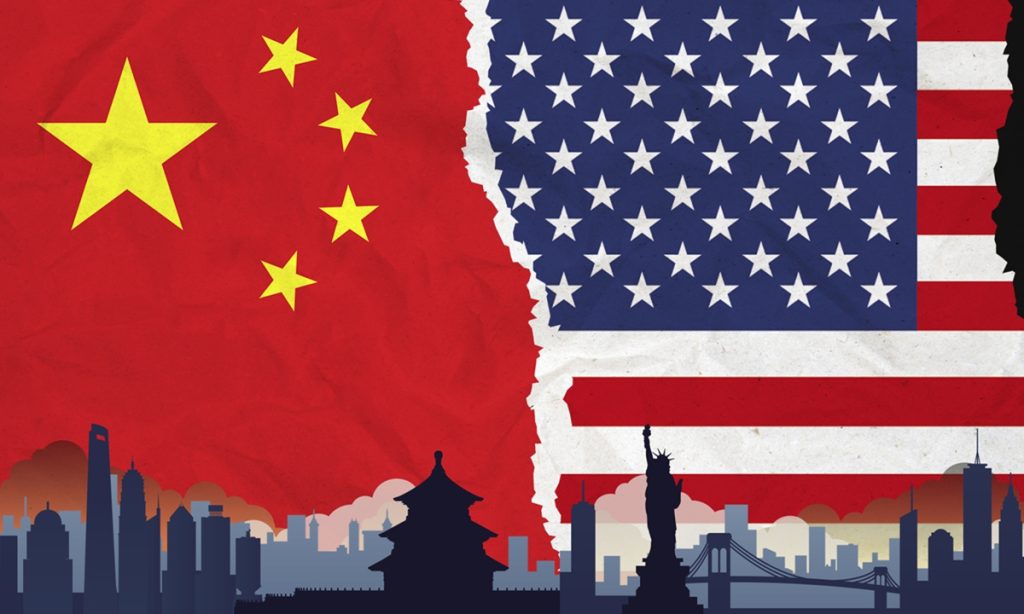Pakistan's new government to enhance cooperation with China in second phase of CPEC, AI technologies: minister
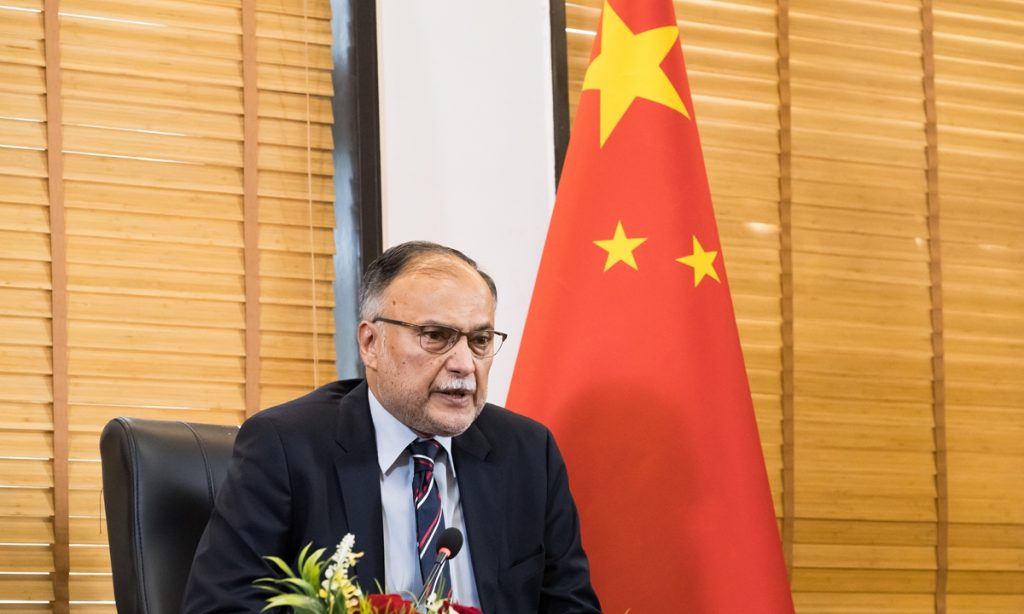
Editor's Note:
Chinese Foreign Minister Wang Yi met with visiting Deputy Prime Minister and Foreign Minister of Pakistan Mohammad Ishaq Dar on Wednesday. Wang called on the two countries to further enhance and develop their all-weather strategic cooperative partnership during the meeting. Ahead of Dar's visit, Pakistan's Federal Minister for Planning, Development, and Special Initiatives, Prof. Ahsan Iqbal (Iqbal) kicked off a visit to Beijing on May 8. Iqbal's visit is the first high-level visit of a Pakistani official to China since the new government came to power in March. At a press conference on May 9 at the Pakistan Embassy in Beijing, Prof. Iqbal shared his opinions on the relationship and cooperation between China and Pakistan with Global Times reporters Leng Shumei and Xie Wenting (GT). He also shared the new government's expectations for the construction of the second phase of the China-Pakistan Economic Corridor (CPEC).
GT: Your visit is the first high-level of a Pakistani official to China under the new government. What is the significance and key objectives of your visit?
Iqbal: It is my great privilege to visit China after the new government was voted into office. This is the first high-level visit to be followed by a visit by the Deputy Prime Minister and Foreign Minister. Then, hopefully very soon the Prime Minister of Pakistan is also likely to visit China.
Pakistan and China have enjoyed a unique relationship and diplomatic history. This is a relationship which is always moved in an upward trajectory. This has never seen any autumn. There has always been spring in this relationship. Every season, the garden of friendship between Pakistan and China has blossomed with new colorful flowers of cooperation and understanding between the people of Pakistan and China and the two ironclad brother countries.
The significance of my visit is that this is a new government after the elections. This is our first engagement with the Chinese leadership at a senior level. In this engagement, we are trying to crystallize and define the parameters of the phase two of the CPEC, on which the Chinese side had indicated its willingness to move forward and Pakistan is also very committed to moving forward. We have discussed some high-priority projects that can be immediately started to give a jump start to kick off the second phase of the CPEC.
We hope that during my visit, with discussions with Chinese leadership, we will be able to work out a road map to implement the second phase of CPEC with the same spirit and momentum, with which we were able to complete the first phase, which had a very big impact on Pakistan.
GT: How has the CPEC benefited Pakistan in the first phase and how does Pakistan plan to enhance cooperation with China in the second phase of the CPEC under the new government?
Iqbal: In 2013, when we kicked off the CPEC, Pakistan was facing severe energy shortages of up to 16 hours per day. And Pakistan's economy and security situation had many challenges. We can never forget that at that time China displayed its trust and confidence in the economy and the people of Pakistan and started a $46 billion project to help Pakistan overcome its difficulties between 2013 and 2018.
Within five years, we were able to harness over $25 billion worth of projects, which helped us establish new power projects of up to 8,000-megawatt capacity, upgrade our logistics and construct new motorways to improve connectivity between Pakistan and China.
Recently we celebrated a decade of the CPEC and we can take a lot of pride in the decade of the CPEC. The CPEC has helped Pakistan transform its energy sector infrastructure sectors and also created over 2 million jobs. It has helped Pakistan acquire new technology as thousands of Pakistani engineers and workers were trained in these projects. It has helped to connect several parts of the country so that the fruits of development can be shared across various regions of Pakistan.
As to how to broaden cooperation from phase one to phase two, particularly, what is important now for us is three aspects. One is the agricultural sector. How do we expand our cooperation to bring new technology into the agricultural sector to enhance productivity of Pakistan? Second is how do we enhance industrial cooperation? Particularly, there is a strong case for relocation of Chinese industries to Pakistan where labor costs in China have increased and Pakistan offers a very attractive environment for relocation to the CPEC that we are setting up. And that will also help us to transform from an agrarian economy to an industrial economy, which is one of the key future goals.
In this industrialization, we also want to focus on exports: How to have an export-led growth in Pakistan. So, there will also be more cooperation at the level of exports to help Pakistan develop its exports and special economic zones.
The third area is technology because China has leadership and many new fourth-generation industrial revolution technologies, particularly artificial intelligence (AI), which is a very important new platform for the future economies and digital economies. So, Pakistan is also preparing its national action plan for the adoption of AI. We will also benefit greatly in this area from China.
Lastly, we also want to expand educational and technical exchange programs. I think close to 27,000 [Pakistani] students are studying in China; China has become a major destination for Pakistani students for higher education and we would like this cooperation to further expand and also to have greater partnership or twinning arrangements between Pakistani universities and Chinese universities so that they can undertake joint research in the areas of cooperation, particularly like agriculture, industrial cooperation, and export development of Pakistan.
GT: In March, there was terrorist attack that led to the deaths of Chinese nationals. What measures will Pakistan take to protect the safety of Chinese people and projects in your country?
Iqbal: There are enemies of the CPEC; enemies of Pakistan-China friendship, who are trying to stop the progress of the CPEC. The recent unfortunate terrorist incidents were sponsored by such elements who want to create obstacles in the way of the CPEC's progress.
First of all, I offer my condolences to the families of those Chinese workers who were targets of this terrorist action; the whole Pakistani nation is in mourning. We consider Chinese engineers and workers in Pakistan as our special guests. They are working for the development of Pakistan. So, no Pakistani ever can even dream of causing any harm to any Chinese person on Pakistani soil. These incidents are sponsored from across the border.
I want to assure you that we have taken further measures to enhance security for Chinese people in Pakistan. On the projects where there are large numbers of Chinese workers, we have also tried to minimize their land travel from project sites. We will moving them either by helicopters to give them added security, or we shall also now enhance the security in terms of the support of paramilitary forces, and the police and also strengthen the protocols of securities.
And the message for those who want to put obstacles in the path of our friendship through such dirty tricks is very clear that such attacks cannot stop the progress of the CPEC. It cannot stop the progress of the BRI. It cannot stop progress of friendship between the ironclad brothers Pakistan and China.
GT: What is your comment on the so-called "debt trap" narrative over the BRI?
Iqbal: Pakistan has benefited from financing by China. The whole disinformation about whether the CPEC or the BRI are debt traps has nothing grounding in reality. As a matter of fact, the CPEC has benefited Pakistan's economy immensely.
GT: The capacity of the new energy vehicles (NEVs) is still far from meeting market demand especially in developing countries. How will Pakistan cooperate with China to develop NEVs in the future?
Iqbal: NEVs are China's strength. China is the leader now in electric vehicles. So, we are seeking to transform our transportation sector with the help of China because we also have set up goals to have a greater share in our transport for electric vehicles to reduce pollution in our cities.
During my visit, I'm meeting some Chinese companies, which are interested in setting up plants in Pakistan to manufacture new-energy automobile buses. And, particularly our interest is to have buses that will clear pollution from our cities, which are electric buses. This will be a priority item for us for the future.
GT: When will the visit of the Pakistani Prime Minister take place and what will the highlights of the visit be?
Iqbal: You have to wait for the final declaration at the time of the visit, but I can only say that we are hopeful that this will be a very productive visit because this is not an ordinary visit. This is a visit by the Prime Minister of Pakistan to Pakistan's best and the dearest country that is the most reliable friend. This is happening at a time when the new government has come in and it is dedicated to taking on the CPEC's second phase with full commitment and full momentum. So, there will be happy outcomes from the visit.
